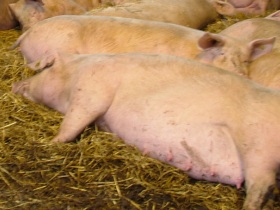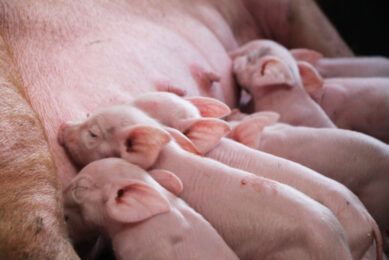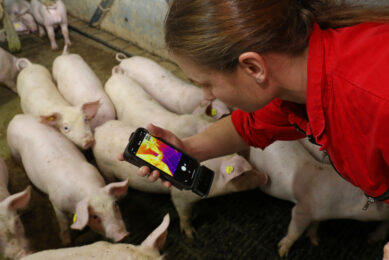Lower animal welfare for 25% of UK meat

The British newspaper the Guardian reports that at least 25% of meat on sale in the UK is not produced according to British standards for animal welfare as the meat is imported.
The newspaper writes that the UK has relatively high standards of animal welfare compared with the rest of the world, including the European Union. It continues to say that there are no restrictions on importing meat from countries that do not impose such standards, where costs are often lower.
Situation analysis
The left-wing newspaper analysed the situation on the basis of the most recent full-trade figures available, for 2007. It found that:
• More than half of bacon sold in the UK comes from the Netherlands, Denmark, Germany and Italy, where farmers can keep sows in smaller pens and for longer periods than is allowed in the UK.
• 43% of other pork products come from Denmark, Germany the Netherlands, Belgium and Luxembourg, where the different conditions on pig farms are allowed than in the UK.
• One quarter of poultry sold in the UK comes from seven European countries and Brazil, which allow higher stocking of chickens and do not force farmers to use dry bedding.
• 3% of beef is imported from Brazil, where practices including hot branding, castration and dehorning of cattle can be carried out without anaesthetic. Products from those major importers accounted for about one quarter of all meat sold, by weight, in the UK that year.
Total imports of pork, poultry, beef and veal made up one third of all meat sales. The newspaper adds that “it is likely that some of the remaining imports came from smaller trading countries also with lower standards.”
Hence, there are renewed calls from British consumer and farming groups for better labelling of products and action to bring standards into line, at least across the EU.
Reactions
Kevin Pearce, head of food and farming at the National Farmers Union (NFU), said some overseas farmers would be required by retailers to meet higher standards than their national minimums. However, there is particular concern over the quality of imported food used in restaurants, pubs, canteens and other catering outlets, which now accounts for half of the money spent on food in the UK, said Pearce.
The NFU has previously complained that the differences in standards are unfair to UK farmers, for example claiming that half of the pork market went overseas when sow pens and tethering were banned.
Sue Davies, chief policy adviser for the consumer lobby group Which?, said, “Sometimes people may be making false assumptions about products, sometimes they may have genuinely lower standards – I don’t think people know what the situation is.”
Related websites:
• National Farmers Union
• Which?
• The Guardian











